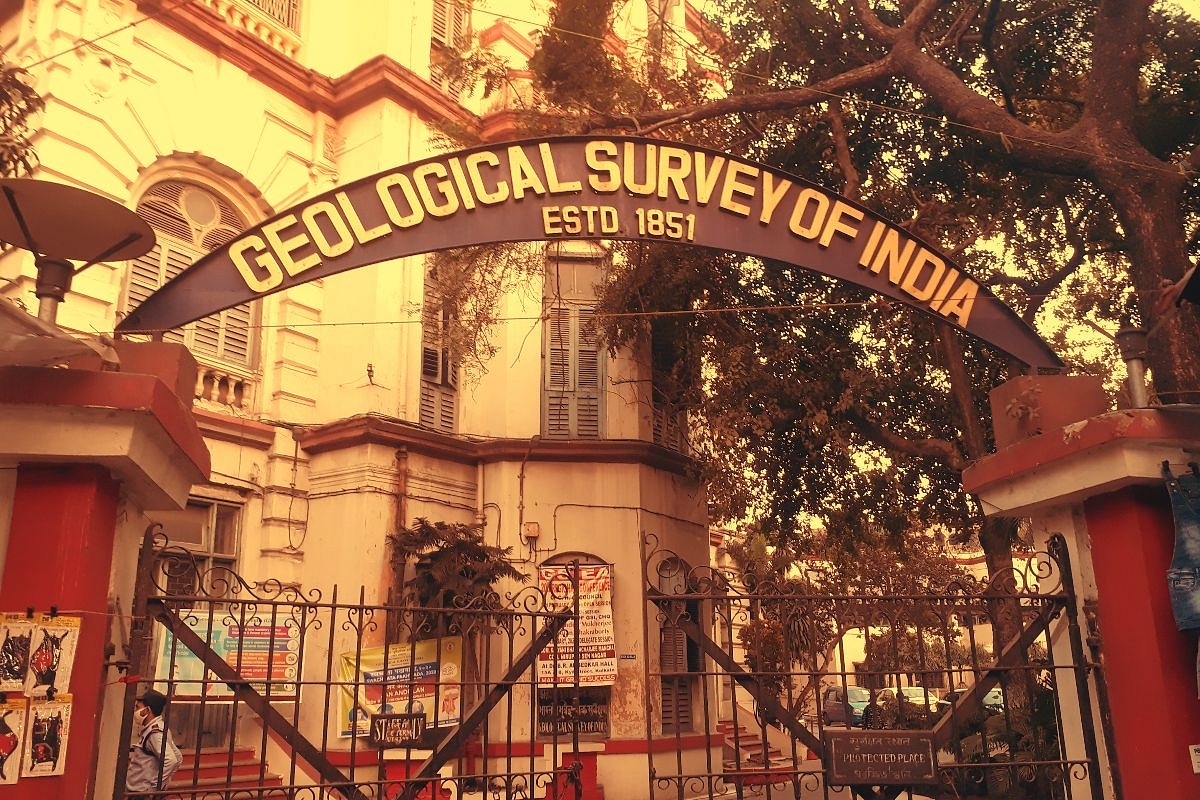News Brief
Lithium Exploration: Geological Survey Of India Carries Out 20 Projects In Five Years
- During the present Field Season Programme 2022-23, the Geological Survey of India has taken up 18 projects on Lithium.

Geological Survey of India (GSI) has carried out 20 projects in last five years.
The Geological Survey of India (GSI) has carried out 20 projects on Lithium and associated elements in ten states across the country in last five years, according to a reply in Rajya Sabha by Pralhad Joshi, Union Minister of Coal and Mines.
Every year, as per approved annual Field Season Programme (FSP), GSI takes up different stages of mineral exploration viz. reconnaissance surveys, preliminary exploration and general exploration for augmenting resource for various mineral commodities including Lithium.
During the present FSP 2022-23, GSI has taken up 18 projects on Lithium in Arunachal Pradesh, Chhattisgarh, Jammu and Kashmir, Jharkhand, Meghalaya, Nagaland, and Rajasthan. However, resource of Lithium has not yet been augmented by GSI.
Further, Atomic Minerals Directorate for Exploration and Research (AMD) is carrying out exploration for Lithium in the potential geological domains of the country. Presently, AMD is carrying out exploration for Lithium in parts of Mandya and Yadgir districts, Karnataka.
Lithium, a strategically important metal, is a key element for new technologies and finds its use in battery, ceramics, glass, telecommunication and aerospace industries. The well-known uses of Lithium are in Lithium ion batteries, lubricating grease and high energy additive to rocket propellants.
Securing Supplies
With the advent of economic development, assured supply of critical and strategic minerals is vital for the defence and security of India as well as its transition to a more advanced low fossil fuel based industrial economy. In this regard, import dependency for strategic minerals is one of the most obvious challenge.
The government , based on a study, has shortlisted some source countries for exploring possibilities of mineral asset acquisition abroad.
Such engagements are currently underway with countries like Australia, Argentina, Bolivia, Chile which are endowed with the cited minerals specifically Lithium and Cobalt in hard rock formations as in Australia and Lithium as brine in the huge tract of Salar de Atacama as in Latin American countries.
KABIL
The government created Khanij Bidesh India (KABIL) in 2019 to ensure India’s mineral security as well as to attain self-reliance in the area of critical and strategic minerals. KABIL is mandated to identify and acquire overseas mineral assets for 12 such minerals including Lithium, Cobalt, Tungsten and Tin.
As part of this, KABIL has signed a non-binding Memorandum of Understanding (MoU) with three state-owned organisations of Argentina- YPF, JEMSE and CAMYEN for information sharing with respect to prospective acreages of Lithium.
The MoU signed with Argentinean mining company Jujuy Energia y Mineria Sociedad del Estado (JEMSE) in July 2020 involves exploration and extraction of products including Lithium, in the province of Jujuy, a major Lithium producing region from which output has surged in recent years as various international companies ramp up mining operations.
Indo-Australian Cooperation
A G2G MoU was signed between Government of India and the Government of Australia through Ministry of Mines and Critical Minerals Facilitation Office (CMFO) respectively for co-operation in the field of mining and processing of critical and strategic minerals such as Lithium.
Under aegis of the G2G MoU, a detailed MoU with a collaborative framework has been signed between KABIL and CMFO on 10 March 2022 for carrying out joint due diligence of select Greenfield and Brownfield projects to identify Lithium and Cobalt mineral assets in Australia for final joint investment decisions and acquisition of such assets catering to the critical ecosystem of both the countries.
Both the countries have committed an initial investment of $6 million shared equally between them for the joint due diligence process. The project is expected to be finished in an estimated timeline of six months.
Introducing ElectionsHQ + 50 Ground Reports Project
The 2024 elections might seem easy to guess, but there are some important questions that shouldn't be missed.
Do freebies still sway voters? Do people prioritise infrastructure when voting? How will Punjab vote?
The answers to these questions provide great insights into where we, as a country, are headed in the years to come.
Swarajya is starting a project with an aim to do 50 solid ground stories and a smart commentary service on WhatsApp, a one-of-a-kind. We'd love your support during this election season.
Click below to contribute.
Latest